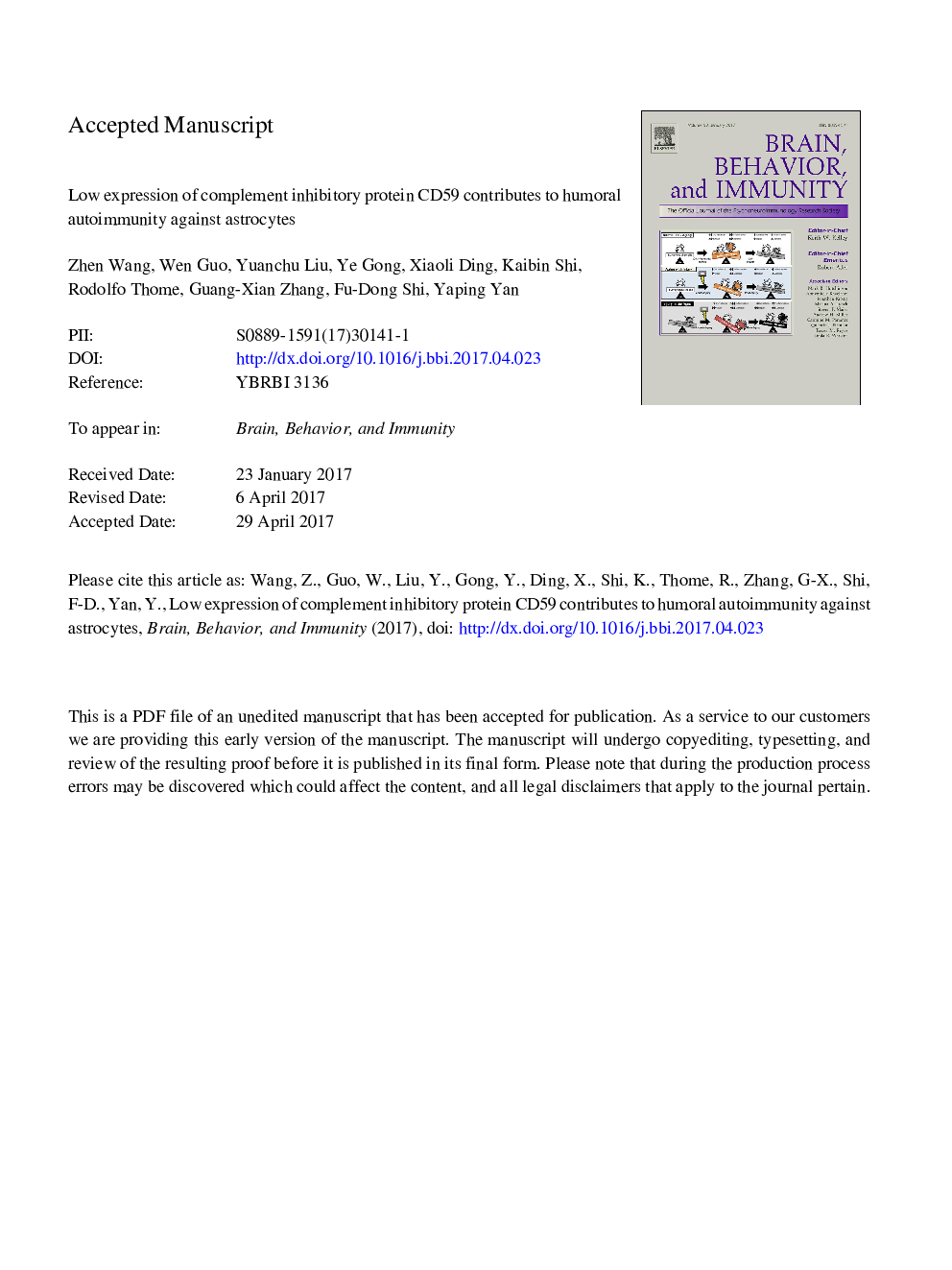| Article ID | Journal | Published Year | Pages | File Type |
|---|---|---|---|---|
| 5040591 | Brain, Behavior, and Immunity | 2017 | 30 Pages |
Abstract
Neuromyelitis optica spectrum disorder is primarily an anti-aquaporin 4 autoantibody-mediated, central nervous system-restricted channelopathy. Patients frequently develop central nervous system-restricted lesions even though autoantigen aquaporin 4 in neuromyelitis optica spectrum disorder is broadly distributed in the central nervous system and peripheral organs. The cause of such tissue-specific immune response remains largely unknown. We confirmed here that CD59, an inhibitory regulator of the complement membrane attack complex, is expressed and co-localized with aquaporin 4 in peripheral organs but is only minimally expressed in astrocytes in the central nervous system. In addition, we further found that CD59 overexpression in mouse brains decreased demyelination, blocked the loss of astrocytes and aquaporin 4, and inhibited membrane attack complex formation and infiltration of inflammatory cells. Inactivation of CD59 in mouse peripheral aquaporin 4-expressing cells and tissues led to complement-dependent cytotoxicity. In accordance with the mouse data, human samples presented higher expression of CD59 in many aquaporin 4-expressing peripheral tissues but not in astrocytes. Silencing or blocking CD59 in aquaporin 4-expressing human tracheal epithelial and skeletal muscle cells induced membrane attack complex formation and cytotoxicity, which suggests a protective role of CD59 in anti-aquaporin 4 antibodies-mediated complement toxicity. Our findings suggest that low CD59 expression in astrocytes may contribute to central nervous system-restricted lesions in neuromyelitis optica spectrum disorder. Restoring CD59 expression in astrocytes may serve as a novel therapeutic target of neuromyelitis optica spectrum disorder.
Related Topics
Life Sciences
Immunology and Microbiology
Immunology
Authors
Zhen Wang, Wen Guo, Yuanchu Liu, Ye Gong, Xiaoli Ding, Kaibin Shi, Rodolfo Thome, Guang-Xian Zhang, Fu-Dong Shi, Yaping Yan,
